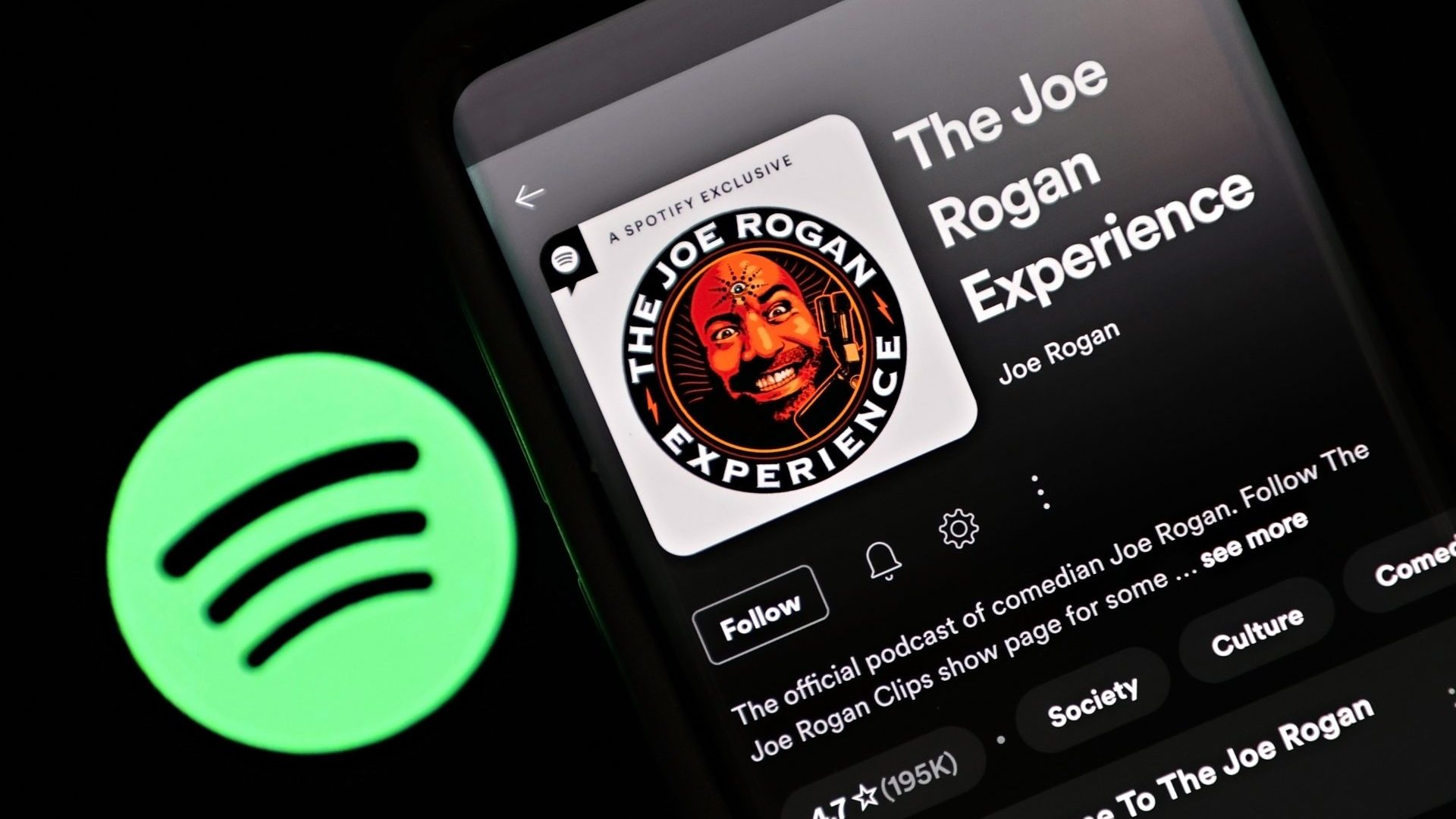The Joe Rogan/Spotify controversy neatly encapsulates the free speech conundrum in a post-truth world where terrifying existential challenges seem to have bolstered the “I think therefore I am… right” brigade at the expense of scientific fact and empirical evidence. And whatever you think, there is a platform for you somewhere.
Information technology was supposed to make facts more accessible – the clue is in the name. And yet, if anything, technology has created an age of confusion, where everything is up for debate. And so the question becomes, who, if anyone, has the moral right and the technical ability to man the barriers as the floodwaters of information and misinformation rise around us?
On Sunday, streaming service Spotify decided it needed to place a finger in the dam, saying it would introduce new content advisories that would direct listeners of any podcast that discusses coronavirus to a dedicated website that “provides easy access to data-driven facts, up-to-date information as shared by scientists, physicians, academics and public health authorities around the world, as well as links to trusted sources.”
The statement came after Neil Young, Joni Mitchell and other musicians said they would withdraw their music from the site in protest at what they called Covid misinformation disseminated during The Joe Rogan Experience podcast, also hosted on Spotify.
Rogan, a comedian and martial arts enthusiast, hosts rambling, hours-long broadcasts where he interviews guests from pop stars to politicians, doctors to martial arts stars on a wide range of subjects. His podcast is one of the most popular in the world – with an estimated 11 million listeners per episode – and Spotify acquired it in 2020, reportedly for more than $100m.
The most recent controversy partially centres on a December episode featuring Dr Robert Malone, who has been credited with a role in developing mRNA vaccine technology but who has since gained renown as a vaccine sceptic and who was banned from Twitter the day before the Rogan recording for spreading Covid misinformation.
Over three hours, the two men discussed a range of theories, including the baseless claim that hospitals are paid to falsely diagnose deaths caused by Covid and the idea that world leaders had hypnotised people to support vaccines. There have been other controversial statements in other episodes – for example, Rogan has promoted the use of ivermectin, an anti-parasitic treatment used mainly on animals, to treat Covid symptoms. There is no proof that ivermectin is effective.
Rogan has said in the past that he is not an anti-vaxxer but following the Morgan episode, 270 science and medical professionals wrote to Spotify, urging them to take action against him for spreading falsehoods.
Now Rogan has taken to Instagram for a kind of mea culpa. But as apologies go, it was a little on the sorry-not-sorry side. He admitted he got things wrong at times, said he tried to correct errors on air when he could (he does, in fact, look things up during the show), and would try in future to introduce more balance and to research topics more thoroughly. He said he agreed with the new Spotify policy on advisories. But his fundamental argument seemed to be: I’m just an ordinary guy doing my best to spark interesting debate.
On the face of it, disarming, but surely ignorance cannot always be a defence?
“These podcasts are very strange because they’re just conversations and often times, I’ve no idea what I’m going to talk about until I sit down and talk to people and that’s why some of my ideas are not that prepared or fleshed out because I’m literally having them in real time but I do my best and they’re just conversations and that’s also the appeal of the show,” he has said.
Rogan seems to be over-gilding the ignorant-but-eager-to-learn lily here. Take his episode with Australian presenter Josh Szeps earlier this month where they talked about the risk of young people developing myocarditis – an inflammation of the heart muscle – as a result of vaccination against Covid.
“For young boys in particular there is an adverse risk associated with the vaccine, a two- to four fold increase in the instances of myocarditis,” Rogan said to Szeps, who interjected with, “You know there is an increased risk of myocarditis among that age cohort form getting Covid as well, which exceeds the risk of myocarditis from the vaccine.”
Rogan was unconvinced: “I don’t think that’s true.” When Szeps insisted, Rogan looked it up. But when he found a story supporting the presenter’s contention, he questioned it, wondering where the information was from.
There is an argument that no matter what he found on his computer, Rogan had already done enough damage with his claim about increased risk of myocarditis. However, afterwards, Szeps defended Rogan, describing him a “ferociously curious, very engaged, highly disciplined puppy dog”.
But puppies, even the nicest, can wreak havoc. If everyone can slice-and-dice information and serve up their take, who is going to do quality control? If we posit that all opinions are valid, how will we determine what is true? And this is not just an issue for new media.
The BBC’s director of editorial policy, David Jordan, recently told parliament that the public broadcaster should “represent all points of view”, even those of people who believe the earth is flat.
“It’s critical to the BBC that we represent all points of view and give them due weight. Flat-earthers are not going to get as much space as people who believe the earth is round, but very occasionally it might be appropriate to interview a flat-earther. And if a lot of people believed in flat earth we’d need to address it more,” he said.
Perhaps that’s the real issue. New York Times reporter Matthew Rosenberg put it well on Twitter. “Joe Rogan is what he is. We in the media might want to spend more time thinking about why so many people trust him instead of us.”











